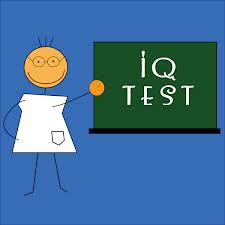Caffeine improves visuospatial and abstract reasoning, memory, verbal fluency, calculatory abilitity, and concentration, speeds reaction time, and boosts a slew of other parameters of mental performance. It happens that these are the very abilities that are measured by IQ tests. It is therefore reasonable to think that caffeine actually boosts your IQ, at least in the short term. To enable you to evaluate the extent of this benefit for yourself, Weinberg and Bealer have created the Caffeine One-Minute Intelligence test.

This self-test will enable you to compare your performance before taking caffeine with your performance after taking caffeine in different doses and at different times. Therefore we don’t provide any norms or average scores. These tests compare your performance with and without caffeine—they are not designed to rank you against other people.
Try this test when you have not used any caffeine for at least 6 hours. Then, experiment with about 100mg, about the amount in 4oz of filter drip coffee or half of a Vivarin tablet. Finally, try tests on different days, both before taking and after taking 150 milligrams, 200 milligrams, and, if you can tolerate it comfortably, 300 milligrams or even 400 milligrams of caffeine. Make sure that you begin the test between 15 minutes and 1 hour after taking caffeine. The results should give you some idea of the kind and degree of benefits you can expect to get from a given dose of caffeine in logical reasoning and accuracy and speed of information processing.
We suggest that you print out the Caffeine One-Minute Intelligence Test. The test includes instructions, questions, and answers. Try it and find out just how much caffeine can increase the power of your mind!
Time Magazine story, “Measuring IQ Points by the Cupful.“




Well, I tried the test. Before my morning cup of coffee I finished 11 questions and got them all right. After my morning cup of coffee I finished 12 questions but got one wrong. Thus my total score was 11 both before and after coffee, for no change. I’ll try the test again sometime in the future but these results are not promising, although it’s admittedly a very small sample.
Did you wait at least 15 to 30 minutes after your coffee before taking the test again? Perhaps you might want to try having two cups of coffee and waiting at least a half hour be retaking the test. Most people do find that caffeine improves their score, but I suppose there is no guarantee!
Well, Bennett, I gave it one more try. This time I drank two large cups of coffee. However, I did even worse this time than I did last time. Before my coffee, I answered 11 questions but got one wrong, for a score of 10. After my coffee, I answered only 8 questions but got them all right, for a score of 8. Go figure!
I’m not sure, but you may be the victim of the Yerkes-Dodson effect, which explains that the effects of caffeine follow a kind of inverted “U” pattern, increasing until the optimal dose and then actually reversing as the dose increases beyond this point!
More about this is future posts…
Indeed, Bennett, I looked it up and I may indeed have been using a too large dosage. I was drinking 16 oz. cups of coffee, So two cups may be too much. Perhaps a 1/2 a cup is optimal. At some future date I’ll try the IQ test again with a 6 to 8 oz. cup of coffee. Very interesting.
Great post!
Well, Bennett, I gave it one more try and got positive results this time. This time I used a smaller dose of caffeine, only an eight ounce cup. My dad also took the test. Before coffee I got 9 out of 10. After coffee I got 11 out of 14, a significant improvement. My dad got 8 out of 11 before coffee, and got 9 out of 11 after coffee, a slight improvement. I guess the dosage is important, and too much lowers the improvement in IQ, and in fact can have a detrimental effect.
Yes, this phenomenon is a fact that keeps caffeine consumption within moderate bounds: If you take more than the optimal dose, the benefits of caffeine actually begin to reverse themselves!